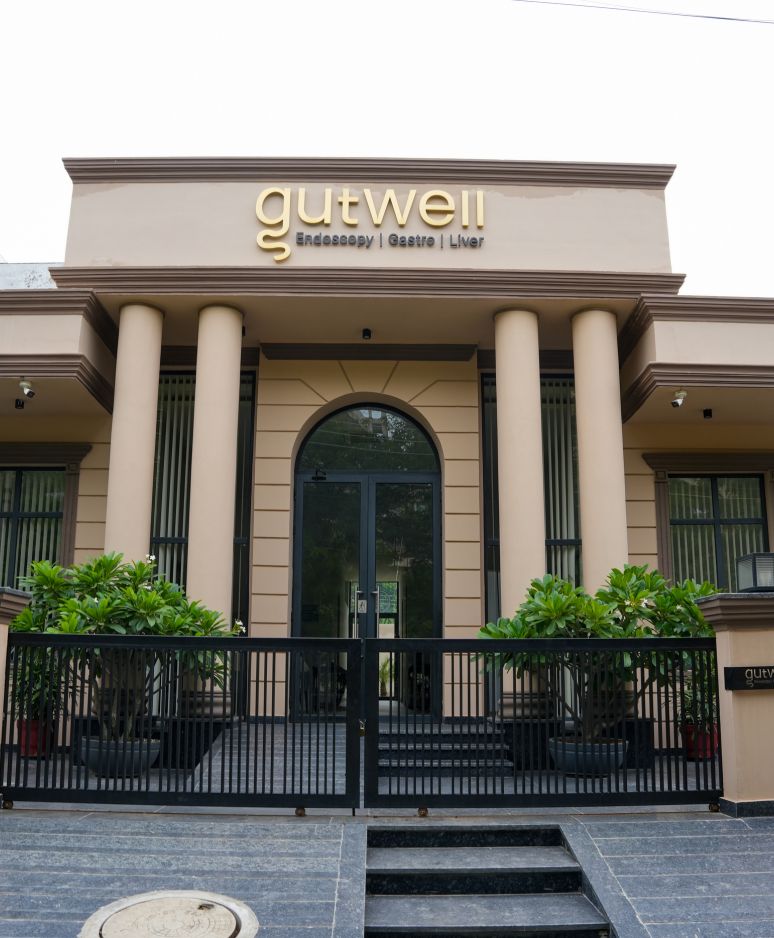
Admin July 11, 2025
Diet After Gallbladder Removal
What to Eat and Avoid
If you have recently undergone gallbladder removal or are planning for the procedure, one of the most common questions is: “What should I eat after gallbladder surgery?” The gallbladder plays a key role in storing bile that helps digest fats. Once it's removed, your body adapts, but making the right food choices is essential for a smooth recovery and long-term digestive health.
As a leading gastroenterologist in Gurgaon, Dr. Sukrit Singh Sethi from Gutwell Clinic offers a comprehensive guide on the diet after gall bladder removal—what to eat, what to avoid, and how to ease your digestive system into a new routine.
Understanding the Role of Diet After Gall Bladder Removal
After gallbladder surgery (cholecystectomy), your liver still produces bile, but without the gallbladder, bile flows directly into the small intestine. This continuous trickle may not be sufficient to digest large or fatty meals, often resulting in symptoms like:
- Diarrhea
- Bloating
- Gas
- Indigestion
That’s why a proper diet after gall bladder removal becomes crucial in preventing discomfort and aiding recovery.
What to Eat After Gall Bladder Removal
Following a light, low-fat, and nutrient-rich diet can significantly reduce digestive stress. Here are food categories to focus on:
1. Low-Fat Foods
Without the gallbladder to regulate bile release, high-fat meals are harder to digest. Choose:
- Boiled or steamed vegetables
- Skinless chicken or turkey
- Low-fat dairy (or plant-based milk)s
- Broths and clear soups
2. High-Fiber Options (Introduce Gradually)
Fiber supports bowel movements but should be added slowly to prevent gas. Include:
- Oats and whole grains
- Fresh fruits like apples and bananas
- Cooked vegetables
- Lentils and legumes (start in small portions)
3. Lean Proteins
Opt for easily digestible proteins like:
- Egg whites
- Tofu
- Fish (preferably grilled or baked)
- Boiled pulses
4. Hydration is Key
Drink plenty of water to aid digestion and prevent constipation.:
What to Avoid in Your Diet After Gall Bladder Removal
1. High-Fat and Fried Foods
Foods rich in fat can trigger diarrhea and cramps post-surgery. Avoid:
- Fried snacks
- Fatty cuts of meat
- Creamy sauces and gravies
- Cheese and butter-heavy dishes
2. Spicy Foods
Spices can irritate the gut in the early recovery phase.
- Limit red chili, black pepper, and strong masalas
- Avoid spicy pickles and chutneys
3. Processed Foods
Packaged and processed foods often contain hidden fats and preservatives that can upset the stomach.
- Chips, cookies, processed meats
- Instant noodles or ready-to-eat meals
4. Caffeinated and Carbonated Beverages
These can cause bloating and acidity:
- Coffee and tea (limit intake)
- Soda and sugary drinks
Long-Term Diet Management After Gallbladder Surgery
The good news is that most people adjust well over time. Gradually reintroduce foods while observing how your body reacts. Keep a food diary if needed. If symptoms persist, it's best to consult a gastroenterologist in Gurgaon like Dr. Sukrit Singh Sethi for a personalized nutrition and treatment plan.
When to Seek Help?
If you are experiencing ongoing digestive issues, unintentional weight loss, or persistent discomfort even after dietary changes, professional guidance is essential. At Gutwell Clinic, Dr. Sukrit Singh Sethi provides expert care for digestive disorders and offers tailored advice on diet after gall bladder removal.
Conclusion
Adjusting your diet after gall bladder removal is a crucial step toward restoring digestive health and improving overall well-being. By eating smaller meals, reducing fat intake, and staying hydrated, you can help your body adapt efficiently.
If you are looking for expert guidance, connect with Dr. Sukrit Singh Sethi, a trusted gastroenterologist in Gurgaon, for personalized dietary recommendations and post-operative care.
